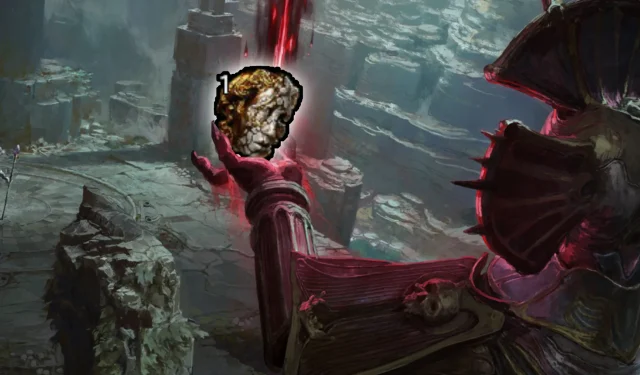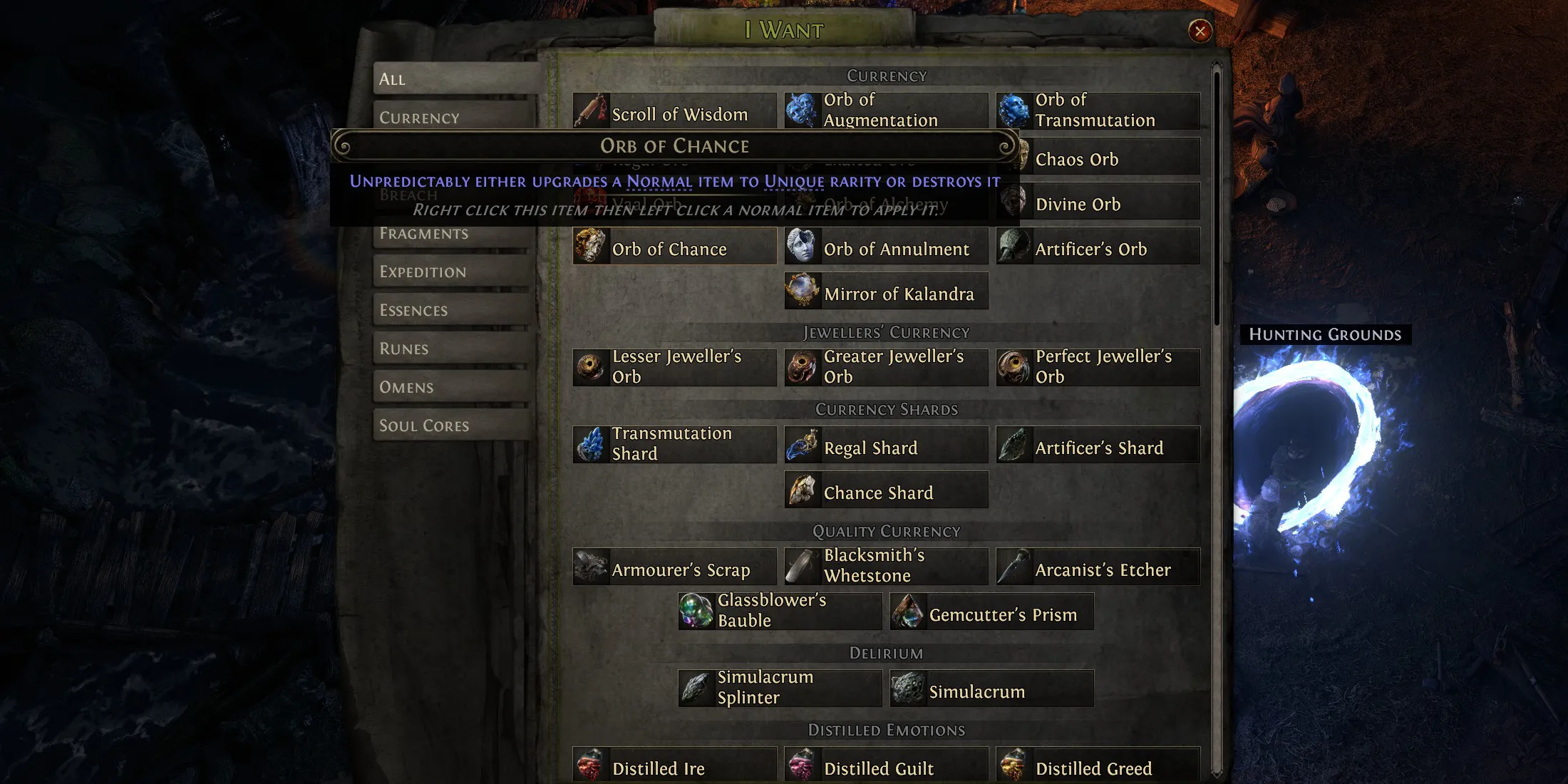
Path of Exile 2 features unique currencies like the Orb of Chance, which players can utilize to enhance the rarity of items, add specific modifiers, or modify gear attributes for generally favorable outcomes. This special orb works alongside the Vaal Orb, with both having the potential downside of destroying the item they are applied to.
When you apply an Orb of Chance to a compatible item, there’s a slim possibility it could upgrade to a Unique item of that same type. However, the risk is significant, as there’s a far greater chance of losing both the item and the orb in the process.
Players of Path of Exile 2 have three primary strategies to procure Chance Shards and Orbs of Chance: 1) disenchanting Unique items, 2) engaging in combat with adversaries, and 3) trading at the Currency Exchange.
Disenchanting Unique Items to Obtain Chance Shards

The most dependable method for accumulating Chance Shards is the disenchantment of Unique items found during gameplay. Disenchanting Magic items yields Transmutation Shards, while Rare items provide Regal Shards. Collecting 10 of each type allows you to craft an Orb of Transmutation or Regal Orb, which can enhance Magic or Rare items.
This disenchantment system acts as a form of recycling. Specifically, converting Unique items grants Chance Shards; it takes 10 Chance Shards to create a single Orb of Chance. Although Unique items are generally powerful, it’s advisable to retain at least one copy of each for optimal play.
If a duplicate Unique item comes your way, it is wise to disenchant the lesser quality version, especially if you aim to harvest more Chance Shards. If you’re keen on acquiring an Orb of Chance and don’t mind parting with some Unique items from less favored builds, disenchanting these pieces can expedite your shard collection.
Defeating Enemies and Looting Containers for Chance Shards and Orbs

In Path of Exile 2, Orbs of Chance can drop from defeated enemies, particularly benefitting from a higher drop rate when facing Magic (blue-named) and Rare (yellow-named) foes. As you progress through the storyline, you’ll discover that early campaign Acts (1-3) offer a lower drop chance, with the odds improving in Cruel difficulty and peaking in endgame and Atlas maps.
At all stages, you can also obtain Chance Shards from enemies and lootable containers. Notably, containers showcase a slightly elevated drop rate for rare currencies compared to regular enemies. Make sure to interact with every chest and container, including less noticeable options like Urns and Bottles, to maximize your acquisition of Chance Orbs and Shards.
While most players tend to find their initial Orb of Chance during the Cruel Acts, it’s not uncommon for lucky adventurers to secure one earlier in the game. The key to efficiently farming for Orbs of Chance lies in battling through Cruel difficulty Acts and challenging endgame maps while consistently looting containers.
For those with a surplus of other currencies, consider trading for an Orb of Chance through the Currency Exchange as a potentially easier route.
Trading for Orb of Chance Through Currency Exchange

The Currency Exchange system in Path of Exile 2 is a valuable resource that allows players to exchange specific currencies for others. Once players reach Cruel difficulty, they can access this feature through the Gambling vendor in various camps and towns. In Clearfell Encampment, you can speak with Finn to unlock this exchange system directly.
To initiate a transaction, click on the top-left box to select Orb of Chance. Then, access your owned currencies from the top-right box. Examine the required quantities of various items needed for exchanging for an Orb of Chance.
Exchange rates may vary significantly; for instance, the cost of an Orb of Chance could range drastically from 11 to 20 Exalted Orbs day to day. As of this writing, approximate exchange rates are as follows:
- Exalted Orb: 16x
- Chaos Orb: 4x
- Orb Vale: 5x
- Regal Orb: 60x
Once you possess the necessary currencies, confirm your selection and the Orb of Chance will be placed in your inventory in exchange for the required quantities of other currencies.




Leave a Reply